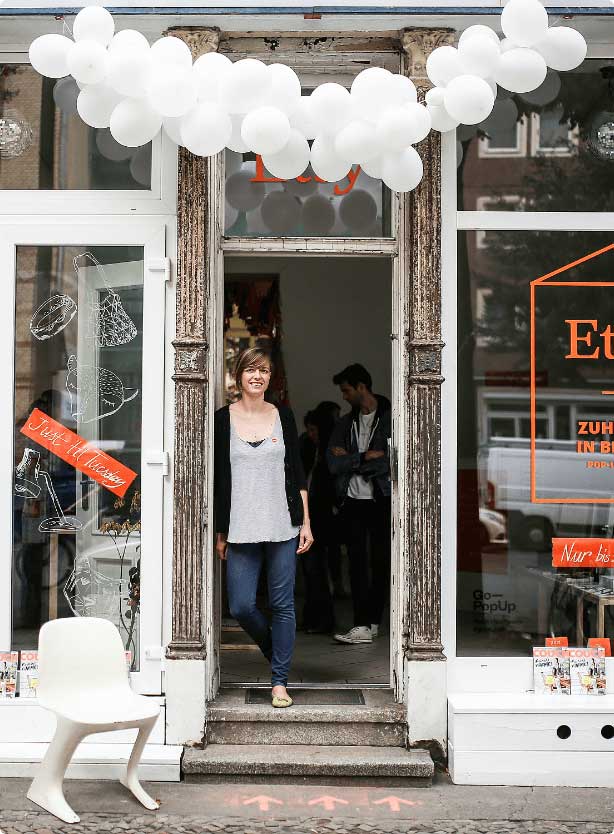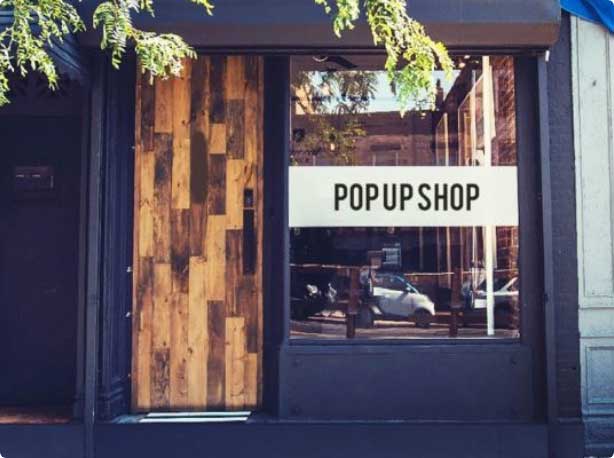
What is Pop-Up Shop?
Why are retailers increasingly using pop-up stores
A pop-up shop is a short-term, temporary retail space where brands and creative entrepreneurs can interact in person with current customers and comminucation their message to potential new once. A pop-up can look like a regular store, but many brands use them to create a unique, engaging physical shopping experince.
Online only brands often use pop-ups to help them decide whether exploring the world of offline sales makes sense for their particular business, without having to make the finacial commitment of a permanent storefront.
Advantages of Popping Up
Create an in-person connection with customers:
The majority of consumers wants to see and touch a product before they buy it, even if they're purchasing online.
Build buzz and awareness:
The press loves pop-up shops, just like your customers who also appreciate a certain exclusivity they will feel, due to the short-term nature of your event.
Test offline selling as a sales channel:
Although the internet still feels like magic, the virtual world is missing something. Your business's sales will increase when you launch a pop-up event beacuse there's nothing more powerful than engaging the 5 senses and creating a real-life experince for your customers.
Drive more sales during busy seasons:
the majority of consumers want to see and touch a product before they buy it. even if they're purchasing online.
Test new markets and gain traction in existing ones:
When you launch a business, or seek to expand one, knowing where to go isn't always clear. Which markets and neighborhoods will be most receptive? Short-term space rentals allow you the time and flexibility to test diffrent areas without a long-term commitment.
Unload older inventory:
Holding on to dead stock is more expensive then you might think. You're not only missing out on sales, you're also paying for carrying costs and tying up money that could be invested elsewhere in your business. Plus, that inventory could age and no longer be sellable, which means lost revenue and cash flow.

Pop-up shops are a great way to breathe new life into aging stock-especiall seasonal merchandise with a short shelf life-by using fresh displays and enticing visual merchandising elements to attract new shoppers. Encourage impulse purchases by offering special deals, such as buy-one-get-one-free, or bunding itesm together.

What is Pop-Up Shop?
How to choose your pop-up location
One major consideration is foot traffic. Is the neighborhood or street you're considering a high-traffic area? Are there plenty of people walking by the location you're scouting-and, most importantly, are those people your target customers?
Nearby retailers and events occuring in the vicinity are other important considerations. Look to see if surrounding retail stores are complementary or competitive to what you're offering. Complementary is good, but you may want to steer clear of direct competitors.
When established shops feel threatened by competing stores, you lose out on making a potential ally. Take the time to introduce yourself and establish a rapport with other shop owners in the area. From them, you can glean valuable information on what makes your shared target demographic tick.